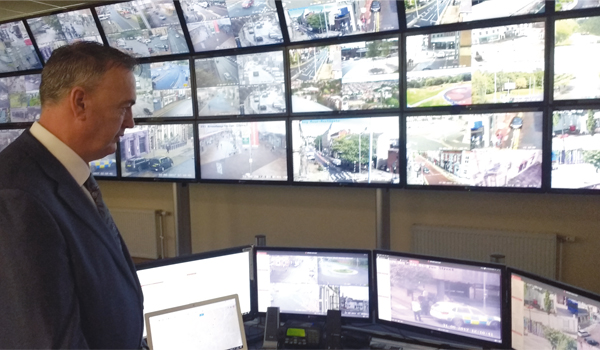The science of swift justice
Cutting-edge science that helps the police to detect crimes in hours
rather than days and creates safer neighbourhoods is at the heart of a
new strategy published last week by the National Policing Improvement
Agency.

Cutting-edge science that helps the police to detect crimes in hours rather than days and creates safer neighbourhoods is at the heart of a new strategy published last week by the National Policing Improvement Agency.
Between 25,000 and 30,000 criminals engage in organised crime, generating over £20 billion of social and economic harm within UK communities each year. And new technology, particularly the Internet, is facilitating traditional crime in new ways, as well as creating new sources of harm including a 250 per cent increase in the number of malicious computer programs in 2008 alone.
Science and Innovation in the Police Service 2010-2013, published last week by the National Policing Improvement Agency (NPIA), sets out how the police service aims to bring these offenders and others to justice more quickly, creating massive savings that will be diverted into priority issues such as frontline policing.
The strategy also commits the service to building stronger partnerships with the scientific community to focus research in areas that will have greatest impact on public safety.
The goal, by 2013, is for officers to have a bigger impact on crime because activities that would have taken hours or days are completed in minutes and at the point of need, with individual officers having new capabilities to deliver a range of specialist scientific tasks. This, in turn, will inspire trust and confidence from the public that its communities are being policed more effectively than in the past.
Chief Constable Peter Neyroud, chief executive of the NPIA, explained: The police service in England and Wales is one of the most innovative of its kind in the world.
By applying modern science on the front line, police officers are detecting criminals faster, staying on the beat for longer and making decisions based on better evidence about what works.
The strategy sets out a strong commitment to partnership with the scientific community to help focus resources on areas that have the biggest impact for officers.
The police service has already made good use of science and innovation at a local level, including the use of evidential drug identification testing kits (EDIT) in 17 forces. These have reduced the cost of testing for Class A drugs from around £100 to £5 and increased delivery times dramatically. The Metropolitan Police Service (MPS), for example, has already saved nearly £2 million as a result of their use. Another 13 forces will shortly be launching EDIT.
However, to drive future improvement and to support cost-effectiveness, the strategy stresses that a systematic approach to science and innovation is needed so that:
- Decision makers in the police service have the evidence base they need to make decisions about investments and interventions that deliver the best public outcomes.
- Operational officers have the capabilities they need to act more quickly and more autonomously, supported by the best information and intelligence available.
- Technical and scientific improvements, particularly in relation to information technology, are used to reduce the cost of police management.
To deliver these aims, the strategy highlights that an approach is needed that is rooted in three key principles for action. These are:
Coordination where there are clear priorities for police science and innovation and where the different activities of the organisations involved align together to have maximum impact;
Collaboration where research and development work engages police officers and the public; and where specialists from different sectors and disciplines work together, encouraging innovation to transfer from one area to another; and
Challenge where investment in innovation is targeted to where it will deliver the strongest benefits, where these are r




